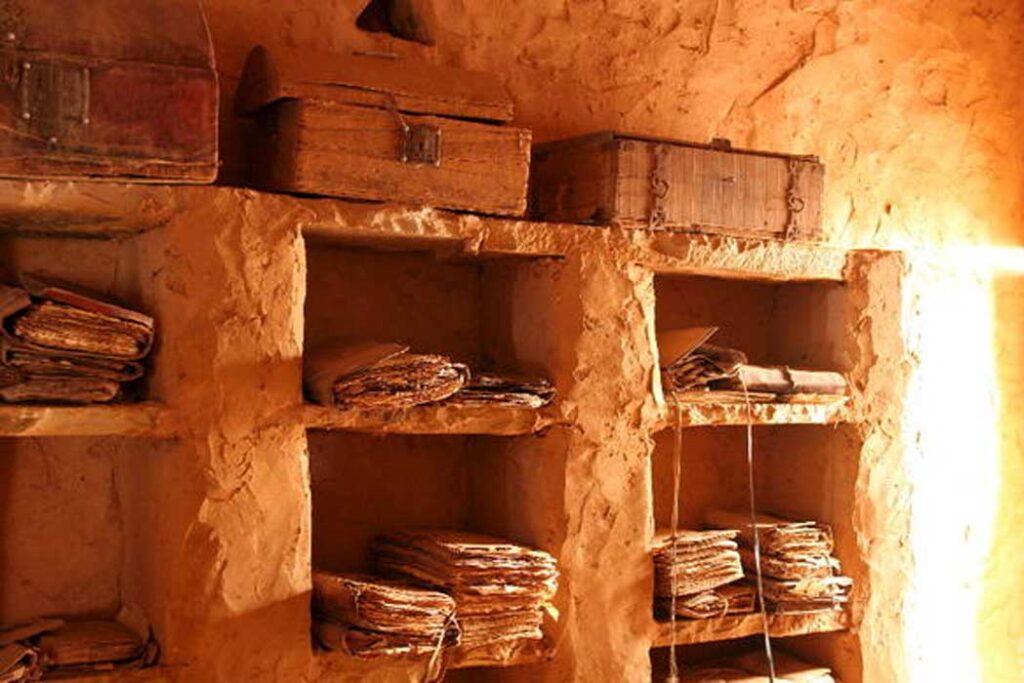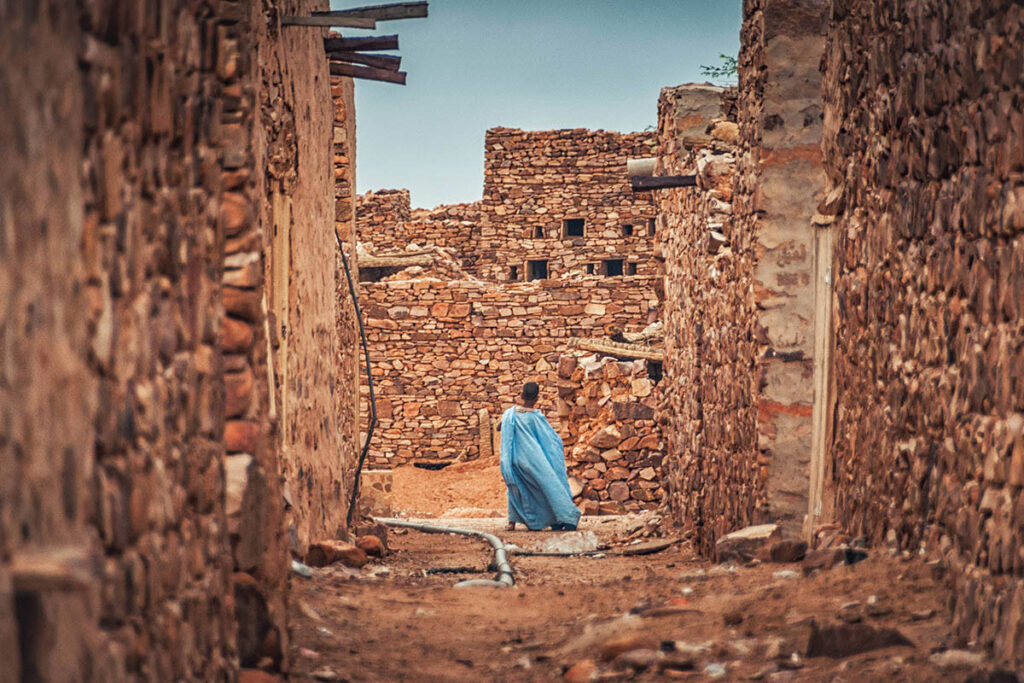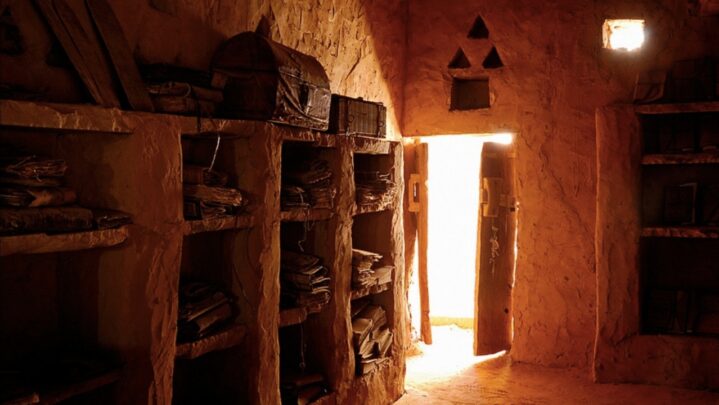A deserted medieval village houses a long-forgotten world of books and libraries. Difficult to believe right? The settlement of Chinguetti in Mauritania, which sits amid the sands of the Sahara, was formed as a commercial center in the 13th century. By the 11th century, Chinguetti had grown into a significant trading hub at the confluence of many trade routes through the Sahara. Desert caravans would halt in the city to sell their wares and rest their tens of thousands of camels. Later, pilgrims passing by on their way to Mecca gathered there.
Due to the constant influx of tourists, village leaders established desert libraries, which were book repositories where pilgrims could learn and educate themselves on a variety of themes such as religion, astronomy, mathematics, and law. Some of these libraries were privately owned as well, and more than thirty of them were open to the public until 1950. It was eventually designated as Islam’s seventh holy city, the “City of Libraries.”
The same families who have been passing down their literary treasures for decades keep an eye on these private libraries. However, the region was struck by a drought, and the number of libraries in the area plummeted, leaving the village with only five. These five, on the other hand, are a veritable treasure trove of preserved manuscripts and volumes.

According to Times of India reports, 1300 Quranic manuscripts are housed in these libraries. These priceless treasures are slowly disintegrating to dust on open shelves in the harsh desert atmosphere.

The dry air and increasing sands pose a serious threat to these old libraries, and various preservationists have attempted to assist in the relocation of the books. But it was all for naught. The government of Mauritania has attempted to purchase these fragile manuscripts from their caretakers in order to preserve them, but the families have refused to part with their inheritance. It’s a privilege to have them.
Keep reading successyeti.com
Also Read: Ways To Rebuild Your Marriage





